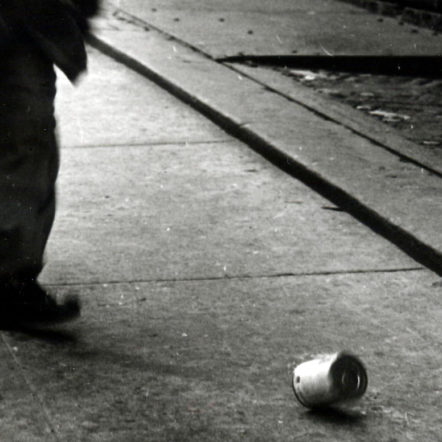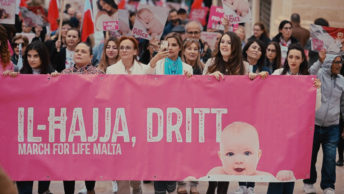I once shared a meal with a high school principal who noted that he had just given his annual “tin can” speech to a group of female students.
His story began with an image of schoolchildren who, having heard the final school bell, rush to their lockers, deposit their books, and retrieve their coats. For the day, they’ve left school behind and have begun their long walk home. At some point along their journey, a group of boys find themselves on a windy street and pass by an empty tin can that had missed deposit into the local garbage truck that morning. As it rolls, one of the boys confront it.
Freeze frame.
For it is here that the principal asks the obvious question: “What do boys do when confronted with a tin can?” Noting their first-hand experience of boys, the girls surmised that they would likely kick it for a time and then quickly move on to something else.
For me, the story struck home as polling firms have long reported that the greatest proponents of abortion are males between the ages of eighteen and twenty-nine. For an element within that group, their cooperation in the conception of a new life becomes a temporary distraction as their modus operandi turns toward kicking the expectant mother and unborn child to the nearest abortion clinic. After the “procedure,” they move on.
Now for some, tying together an image of tin cans and human beings may prove to be a stretch; however, clever minds will see the similarities. With regard to tin cans, it is easily provable that their value was greater prior to their opening; that is, while they were filled with pumpkin or sauce, stores could actually charge consumers for their content. Willingly, hard-earned income is exchanged for that which serves an immediate purpose, be that grandma’s famous pumpkin pie or the latest recipe that catches our eye. After our use of the ingredients provided within the tin cans, however, we quickly toss them into the nearest garbage dump.
But what of human beings? In his Letter to the Corinthians (1 Cor 3:16-17), St. Paul first asks a question and then provides us with apostolic wisdom.
“Do you not know that you are the temple of God and that the Spirit of God dwells in you? If anyone destroys God’s temple, God will destroy that person; for the temple of God, which you are, is holy.”
Despite the Apostle’s recognition that human persons are dwelling places of the Living God, did you know that each day, in the United States alone, three-thousand children are kicked down the alley whilst their mortal bodies are deposited into local dumpsters?
One of my favorite “saved” columns was written many years ago by Michigan native, Joseph Sobran. In his essay, The best argument against abortion? A baby, Sobran noted: “So I’m about ready to give up arguing about abortion. I feel that if my new neighbor (a newborn baby) can’t turn people against abortion, I certainly can’t. She’s such a wondrous bundle of possibilities and has been since she was too small to see. Do we measure worth by size nowadays? It’s the tiny things that fill you with awe at what they can become. Why waste them?”
In the end, despite what politicians or pundits may say, human persons are not meant for our use and disposal. For each of us has been purchased at the highest of prices. (see 1 Cor 6:20)








